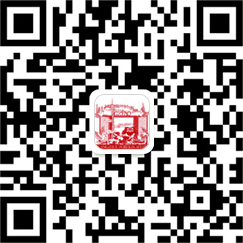Guidelines on Masks by the General Public to Prevent COVID-19 Infection (April edition, 2023)
Scientific mask wearing is important to prevent COVID -19. In accordance with the requirements of the General Plan for the Implementation of Class B Management of Novel Coronavirus Infection and the Protocol for the Prevention and Control of Novel Coronavirus Infection (10th Edition), these guidelines have been formulated to guide the public in the scientific wearing of masks and to protect public health.
I. Situations or scenarios in which masks should be worn.
1. If you tested positive for COVID -19 on antigen or PCR.
2. If you experience suspected symptoms of COVID -19 infection such as fever, sore throat, cough, runny nose, muscle aches, and fatigue.
3. If a cluster of cases occurs in the community or school where you live, work or study.
4. If you go to medical facilities for advice, guidance, support or visit.
5. If you visit places where vulnerable people are, such as elderly care and well-being centers.
6. If you are a medical, catering, cleaning or security staff member in key institutions such as elderly care, well-being centers, and child care institutions, schools and education institutions.
II. Situations or scenarios in which masks are recommended.
1. Public transportation such as airplanes, trains, coaches, boats, subways and buses.
2. Enclosed spaces where people are close together such as supermarkets, theaters, passenger transport stations.
3. When elderly individuals, pregnant women, or people with chronic diseases visit indoor public places.
4. Large conferences or events with people from a wide range of locations, high mobility. Masks are recommended if no antigen or PCR testing, health surveillance, and other pandemic prevention and control requirements are in place.
III. Situations or scenarios where masks may not be worn.
1. Outdoor places such as open squares and parks.
2. Indoor workplaces and meeting rooms where people are relatively fixed.
3. Large conferences or events with people from a wide range of locations, high mobility. Masks are not necessary if prior antigen or PCR testing, health surveillance, and other pandemic prevention and control requirements are in place.
4. Certain personnel who undergo regular PCR or antigen testing and health surveillance, such as performers at festive events, members of the Guard of Honour, etc., are not required to wear masks when attending major events.
5. Persons participating in sports when masks may cause respiratory problems.
6. Young children aged 3 years or younger.
7. Teachers and students on campus.
IV. Selection of masks
COVID -19 Infected and suspected infected persons are advised to wear particle protection masks that meet N95 or KN95 standards or higher (without a breathing valve), while others are advised to wear disposable medical masks or surgical masks.
V. Other precautions
1. In addition to the above situations or scenarios, individuals can decide for themselves whether to wear a mask, depending on their health condition and needs.
2. People with cardiopulmonary impairments should only wear masks under medical supervision.
3. Institutions employing public service workers should provide them with masks that meet the relevant requirements and set up independent storage facilities for disposed masks.
This guidance will be dynamically optimised and adapted to the needs of pandemic prevention and control. All local departments may develop local and sector-specific guidelines for masks with reference to the above guidelines.
Copyright © Foreign Affairs Office of Guangzhou Municipal Government,
Hong Kong and Macao Affairs Office of Guangzhou Municipal Government All rights reserved.
Presented by China Daily.
京ICP备13028878号-28



